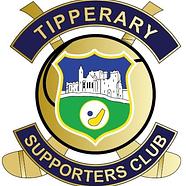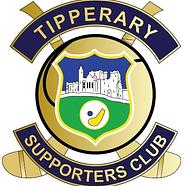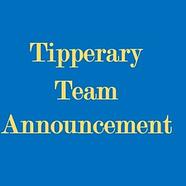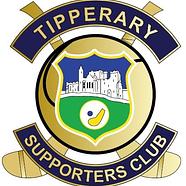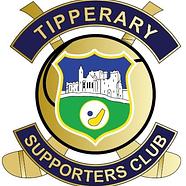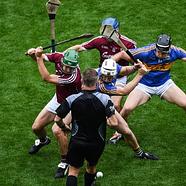He managed Carlow to titles in the Christy Ring, the Joe McDonagh and Division Two; his coaching CV is thick as a phonebook
There’s no terrace chant about Colm Bonnar. He won’t make Conor’s Sketches his next million. He doesn’t have a nickname. He’s never been a pundit on The Sunday Game and nobody’s ever looked for him to front a podcast. Bonner Maher isn’t even named after him.
As a player, he won All-Irelands at every level for Tipperary between 1982 and 1998. He even played in a junior All-Ireland final. Yet of the three Bonnar brothers from Cashel King Cormacs, Conal was always regarded as the most stylish hurler and when it came to Cormac, ‘The Viking’ was The Viking. Colm was always there, rock-steady and dependable. Nobody’s idea of a cult hero.
As a coach, he has been over six Fitzgibbon Cup-winning teams at Waterford Institute of Technology. He trained the Waterford seniors under Justin McCarthy when they made their Munster breakthrough in 2002. He has won All-Irelands as a coach with Tipperary in camogie and with Ballyhale on the club scene.
He managed Carlow to titles in the Christy Ring, the Joe McDonagh and Division Two. His coaching CV is thick as a phonebook, the roll call of players who have learned from him is a who’s who of the game over the past quarter-century.
And yet, when Bonnar was given a three-year term as Tipperary manager over the winter, it was impossible to escape the fact that the county was generally underwhelmed by the appointment. He was, depending on who get your gossip from, at best second choice for the gig and probably in reality either third, fourth or maybe even fifth on the list.
Bonnar knows this, of course. He knows all of it. He has been a fixed point on the hurling map for a long time and doesn’t need anyone to tell him how he is perceived or where he stood in the firmament of potential Tipp managers last autumn. In a way, he’s as surprised as anyone it has finally fallen in his direction.
A dream
“When I got the call this time, I couldn’t believe it really,” he says. “It’s a dream come true for me. I gave everything I had as a player to Tipp and the chance to do it now as manager is something I was really up for. I know Liam Cahill] would have been the county board’s first choice, obviously enough. Having worked with a lot of these players at underage and won All-Irelands with them, the county board would have been fools not to go to him and ask him.
“That’s not an issue at all. I know Liam for years, we’ll have a good laugh together and good blackguarding over it all. And I have no doubt whatsoever that he will come back to Tipperary and be the bainisteoir one day. No doubt about that at all.”
For now, it’s Bonnar’s gig. He has been throwing his hat into the ring for the Tipp job for the best part of two decades. He made calls to county board men when Michael Doyle finished up in 2003 and after Liam Sheedy’s departure in 2010, sounding people out, letting it known that he was around. He eventually went in as Ken Hogan’s coach in the mid-2000s, coinciding with one of those intermittent periods of stasis that tend to happen in Tipperary every once in a while.
After Michael Ryan stepped down in 2018, Bonnar sat for an interview with the county board but was nearly relieved when Sheedy popped back up on the scene. Not because he didn’t want job, more because the particulars of the situation were starting to cause static and that’s not who he is. He was Carlow manager at the time and though he knew they wouldn’t have stood in his way, he didn’t want it to be messy.
“I know they would have understood the pull of my home county but I couldn’t get myself into a situation where this was going to be a drawn-out thing, where there would be stories flying around the place. But the [Tipp] county board sort of said, ‘Ah no, look, hang tight there. You’re in with a chance.’
“They were talking to Liam Cahill and to Willie Maher and I just said, ‘Look, if ye don’t know my pedigree by now, that’s fine. But I don’t want to be doing this behind Carlow’s back. So I’ll pull out of the process altogether’. In the meantime, it didn’t matter anyway because once Liam Sheedy came back into the picture, I would never have stood against him. That was his team and he knew there was another All-Ireland in them.”
Full-time
So the road hasn’t always been straight. But in one way or another, Bonnar has always been on it. All the way back in 1987, he was the first salaried GAA coaching officer in the country. Donie Nealon was over the Munster Council at the time and he had the idea of launching a pilot scheme to see was it feasible to pay somebody full-time to coach GAA.
Bonnar was that pilot scheme, with his wage packet split three ways between the Munster council, the Waterford County Board and the GAA club in Waterford RTC where he had just finished his sports and recreation degree. He did it for three years and by the time he finished up, pretty much every college in the country had a GAA development officer.
Thirty-five years on, that template has been developed and finessed and put to work in every county. In clubs, colleges and schools, in both codes, for girls and boys. All of it started with Colm Bonnar, just 23-years-old at the time and essentially flying blind.
Bonnar has always coached. As a teenager, he took under-9s and under-10s without ever really being asked. In Waterford IT (or RTC as it was then), he raged against the system that would allow the college play away against the likes of UCC and UCG in the league but wouldn’t let them into the Fitzgibbon proper.
They only got in the year he became coaching officer – he eventually came back to do a Masters in 1995 and captained them to their second Fitzgibbon at the age of 31. He had, of course, managed them to their first in 1992.
Hurling fascinates him and amuses him. He has seen every fad come and every fashion go and of he has a stated philosophy, it’s that he’s inclined to think that it could do with a bit of demystifying from time to time. He likes his players to be seriously fit and he trusts them to be able to hurl. Beyond that, he tries to understand them, first and last.
“I’ve been in places where they’ll be asking, ‘What are you bringing with you?’ And I just always go, ‘It’s never, never about me. What are the players going to bring? What is their why?’ That’s where I’ve always started with any team.
“You meet the players and just kind of see why. Why are you coming up here training? Just trying to get inside their head. At the end of it, everybody just wants to be part of something. They want to feel valued.
“You would have the odd player down the years who would go, ‘Well if we had this or if we had that, we would be better’. And I would always put it back on the player. What are you doing to get up to the mark? Why do I need to make you fitter? There will always be structure and there will always be a plan. But the player has to be accountable.”
Already, there is pressure. Or there would be, if he allowed himself to feel it. Tipp lost to Kerry in the Munster pre-season tournament and only had four points to spare over Laois last Sunday. Neither day overly bothered him. It’s February, they’re only getting started and results are going to be what they’re going to be.
Outcomes
“I never worry about outcomes. Once the players come in, once we’re absolutely bombing, we’re giving it what we can. And after that, life is for living. You go back to your family, hurling doesn’t change you. You’re not a different person. You go home to your wife your kids or your friends and you can’t let yourself get too up or too down over it.
“You can’t let the result of a game or a performance turn you into a hermit. You can’t let it turn you into someone who won’t talk to people for days or anything like that. This is something that you love doing. You can never let it do that to you.
“We always try to get wins out of it. You work hard at it, you do everything you can but if it doesn’t go for you, it doesn’t go for you. Did you do your best? Did you work it as hard as you can? If you did, we go on from there. And if you didn’t, we change it and do better the next time.”
All of which is fine, until it isn’t. The Tipp hurling public tend to walk around with the first two nines already dialled on the phone. It won’t take much for Bonnar to be told he’s making a hames of it all and he knows better than anyone that expectations never dip too far.
“No. And I wouldn’t expect them to. There is so much hurling played in Tipperary, there are so many hurlers all around the county. And you can’t be in the middle of all that and not expect the county team to be capable of success. And sure then when it doesn’t happen, it’s all the manager’s fault – how can we not be winning when we have all these hurlers?
“But that’s part and parcel of it. That’s the job. I hope Tipperary people always have high expectations because that’s what gives Tipp people their ambition. I’ve lived on stories of the great Tipp teams of the past and I would never, ever want to downplay Tipperary. We should be in the top two or three hurling counties all the time. I don’t ever want us to think that we shouldn’t.”
If and when they aren’t, he’ll hear all about it.


